Questões de Língua Inglesa do ano 2013
Lista completa de Questões de Língua Inglesa do ano 2013 para resolução totalmente grátis. Selecione os assuntos no filtro de questões e comece a resolver exercícios.

O pronome It, no início do texto, refere-se a
- A.
bar code.
- B.
young man.
- C.
beach.
- D.
sand.
- E.
luggage.

Once I brought her a gift can also be correctly written as
- A.
once I brought to her a gift.
- B.
once I brought a gift to her.
- C.
once I brought for her a gift.
- D.
I brought for her a gift once.
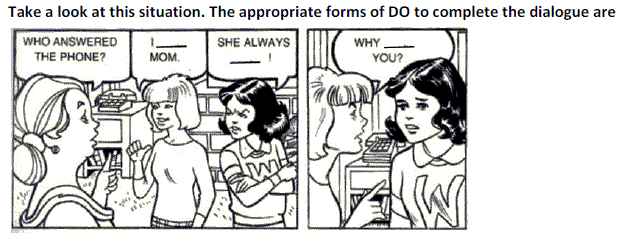
- A.
dont / did / do.
- B.
do / doesnt / did.
- C.
did / does / didnt.
- D.
didnt / did / dont.
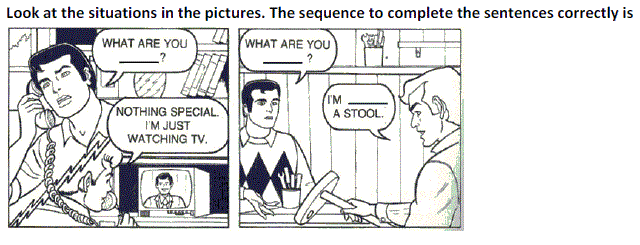
- A.
doing / doing / doing .
- B.
making / doing / doing.
- C.
doing / making / making.
- D.
making / making / making.
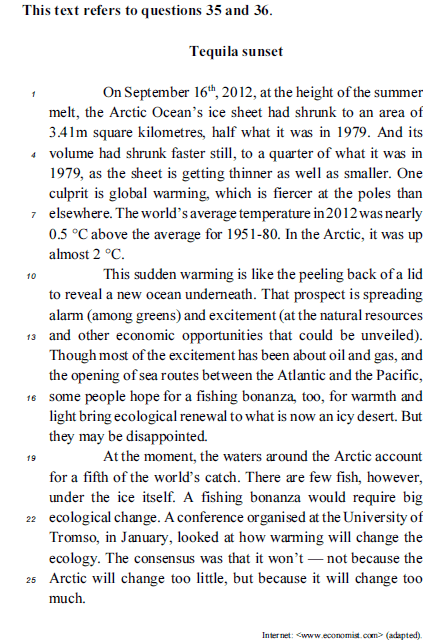
The word for, in for warmth and light bring ecological renewal to what is now an icy desert (l.16-17), is used to introduce
- A.
an unexpected result.
- B.
a consequence.
- C.
a reason.
- D.
a purpose.
- E.
a contradiction.

The only correct grammar rule, using examples from the text, is
- A.
adverbs of frequency are always used after verbs, as in it is often under-appreciated (line 02).
- B.
adjectives can be used in a noun position after verbs as in feel good (line 07).
- C.
the use of whether and if is interchangeable, as in whether it is to teach or (line 08).
- D.
abstract nouns like knowledge (line 01) and understanding (line 02) are not preceded by indefinite articles.
- E.
the prefix out- , as in outweigh (line 10), always gives a verb the meaning of bigger.

The blanks in lines 04 and 07 can best be filled in, respectively, with the prepositions
- A.
within with
- B.
in at
- C.
with within
- D.
for inside
- E.
at in
Língua Inglesa - Gramática - Fundação para o Vestibular da Universidade Estadual Paulista (VUNESP) - 2013
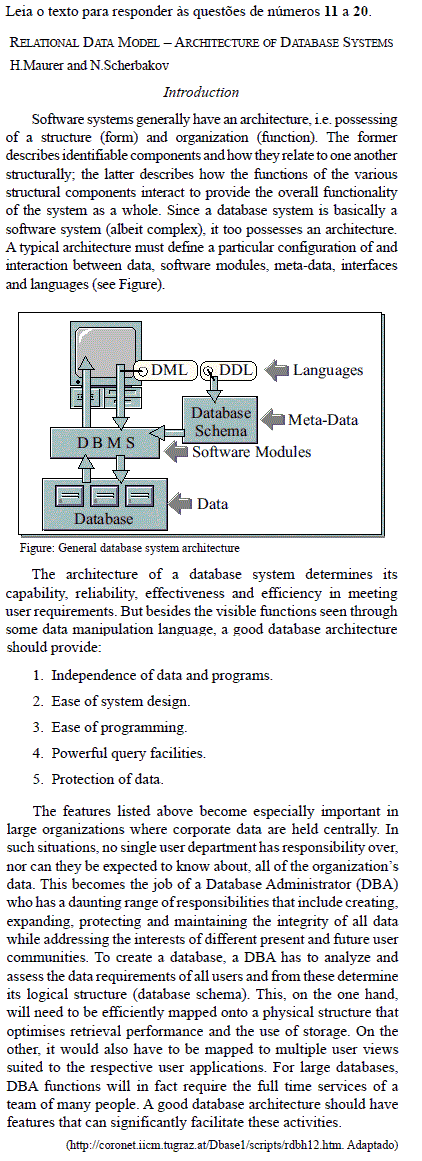
O trecho do primeiro parágrafo Since a database system is basically a software system (albeit complex), it too possesses an architecture. pode ser reescrito, sem alteração de sentido, da seguinte forma:
- A.
Any database system possesses a complex architecture such as its software system.
- B.
Only complex systems are thought to have an architecture, which is the case of quite a few database softwares.
- C.
No matter how complex it is, a database system provides software for basic architecture.
- D.
Although complex architecture systems can be applied to software, this seldom describes a database system.
- E.
A database system has an architecture because it is essentially a complex software system.
Língua Inglesa - Gramática - Fundação para o Vestibular da Universidade Estadual Paulista (VUNESP) - 2013
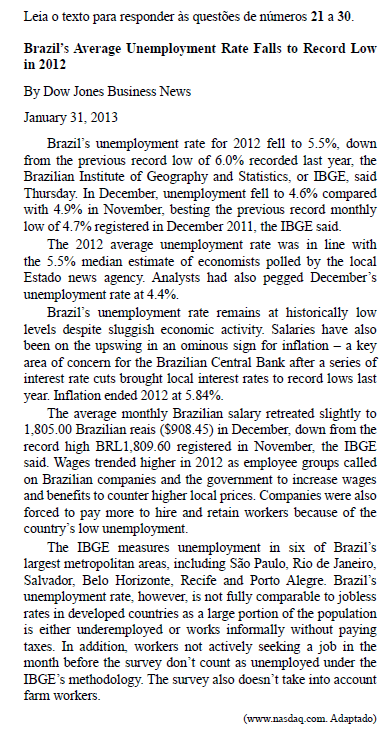
O trecho do quinto parágrafo workers not actively seeking a job pode ser reescrito, sem alteração de sentido, como
- A.
employers that arent actively pursuing a job.
- B.
workers whose job wasnt active.
- C.
workers which found an active employment.
- D.
workers who werent actively looking for a job.
- E.
active employees that have just found work.
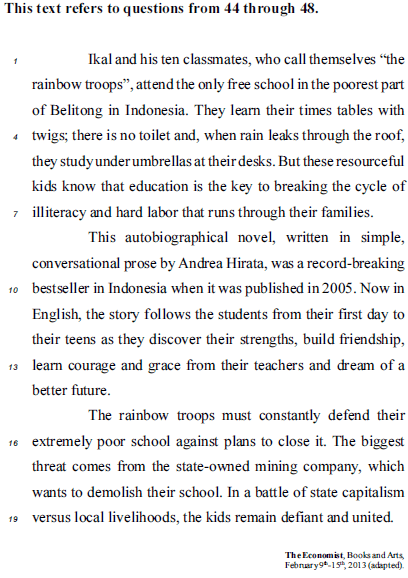
In who call themselves (l.1), who is
- A.
a conjunction.
- B.
a relative pronoun.
- C.
an object pronoun.
- D.
an interrogative pronoun.
- E.
a preposition.


